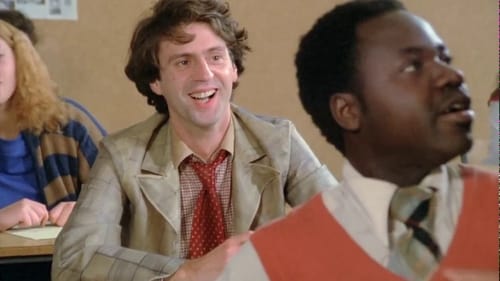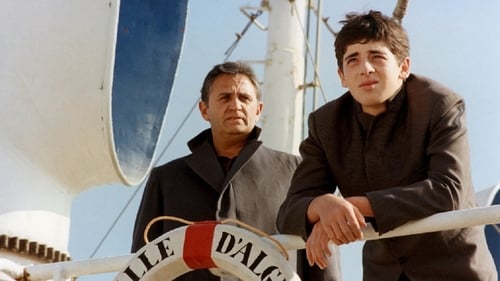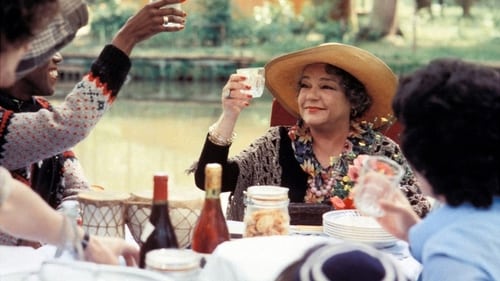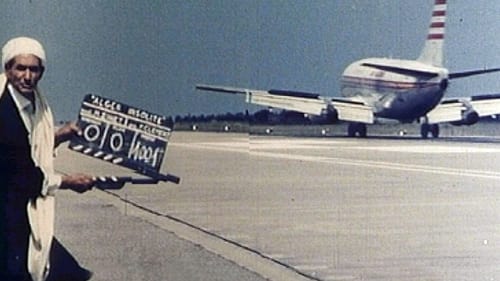Mohamed Zinet
Nascimento : 1932-01-16, Alger, Algérie
Morte : 1995-04-10

Mustapha le terroriste
The story centers around a graduating class of "less-gifted" students in a private Versailles high school. Only a miracle has brought the students this far along, and after a practical joke misfires and the whole school is dynamited, the students are in deep trouble. They have to present themselves in court for their punishment and it could not be worse: If they don't pass their high-school graduation exams, they go to prison!

Le porteur
A shady Parisian tries to take advantage of a family of French-descended Algerians forced to move to France.

Kadir Youssef
Madame Rosa vive num prédio de seis andares, sem elevador, no bairro Pigalle, em Paris. Ela é uma prostituta aposentada, judia e sobrevivente do campo de concentração de Auschwitz. Vive adotando crianças abandonadas por outras prostitutas. Momo é o mais velho e seu favorito, um rapaz argelino que foi criado como muçulmano. Quando ele pergunta a ela sobre seus pais, ela sempre dá respostas evasivas. À medida que vai ficando mais velha e com mais crianças para cuidar, o dinheiro vai acabando e Momo precisa ajudar sua mãe. Um dia o pai de Momo aparece. E Madame Rosa, doente, não sabe o que fazer.

Writer
Originally commissioned by the city of Algiers to promote tourism, Mohamed Zinet’s Tahia ya Didou blends documentary with fiction to create a poetic, acerbic and rapturous portrait of the director’s native city. The camera travels freely, through the port, market, streets and cafés, capturing everyday people, some of whom recur frequently enough to seem like protagonists. The nominal plotline follows a French tourist couple’s leisurely visit to the city, the man having previously served in the army during the Algerian war. As they walk around, his comments betray his mindset’s racist colonial prejudices, while his wife reiterates asinine clichés. Their unhurried wandering is interrupted when he comes across a blind man and realises that he tortured him during his army service. The film is punctuated with punchy sequences that show a poet named Momo delivering verse as an elegy for Algiers.

Hassan
Originally commissioned by the city of Algiers to promote tourism, Mohamed Zinet’s Tahia ya Didou blends documentary with fiction to create a poetic, acerbic and rapturous portrait of the director’s native city. The camera travels freely, through the port, market, streets and cafés, capturing everyday people, some of whom recur frequently enough to seem like protagonists. The nominal plotline follows a French tourist couple’s leisurely visit to the city, the man having previously served in the army during the Algerian war. As they walk around, his comments betray his mindset’s racist colonial prejudices, while his wife reiterates asinine clichés. Their unhurried wandering is interrupted when he comes across a blind man and realises that he tortured him during his army service. The film is punctuated with punchy sequences that show a poet named Momo delivering verse as an elegy for Algiers.

Director
Originally commissioned by the city of Algiers to promote tourism, Mohamed Zinet’s Tahia ya Didou blends documentary with fiction to create a poetic, acerbic and rapturous portrait of the director’s native city. The camera travels freely, through the port, market, streets and cafés, capturing everyday people, some of whom recur frequently enough to seem like protagonists. The nominal plotline follows a French tourist couple’s leisurely visit to the city, the man having previously served in the army during the Algerian war. As they walk around, his comments betray his mindset’s racist colonial prejudices, while his wife reiterates asinine clichés. Their unhurried wandering is interrupted when he comes across a blind man and realises that he tortured him during his army service. The film is punctuated with punchy sequences that show a poet named Momo delivering verse as an elegy for Algiers.

“Monangambeee” was a rallying cry used by activists during Angola’s anti-colonial liberation struggle to gather villages together. The film of the same title addresses Portuguese arrogance towards Angolan culture. Sarah Maldoror draws on a novella by José Luandino Vieira, the story of a political prisoner, to make a film about humiliation, solidarity and resistance.






